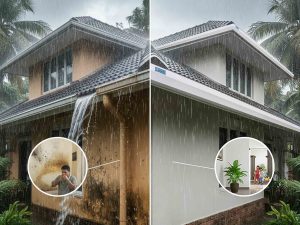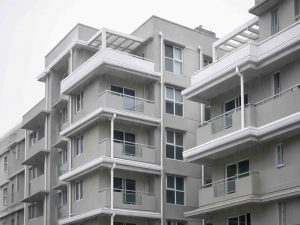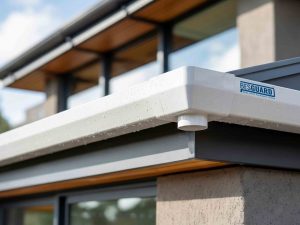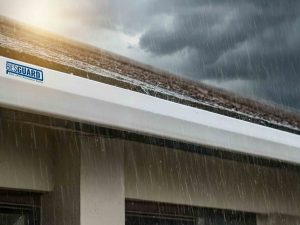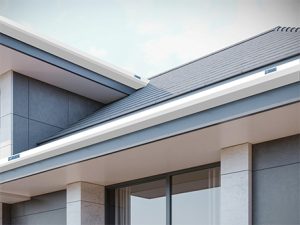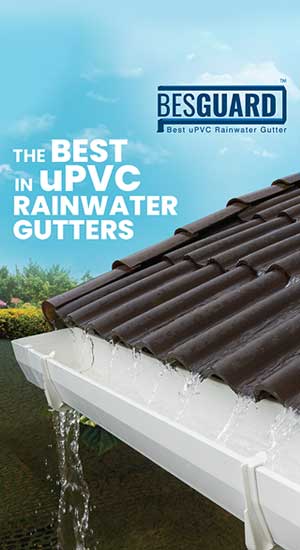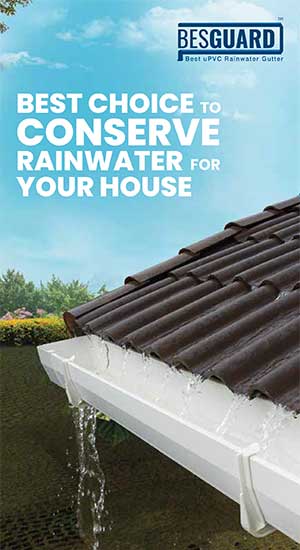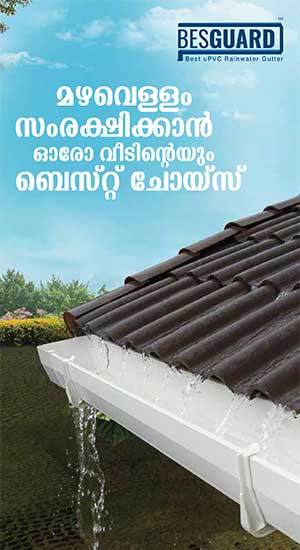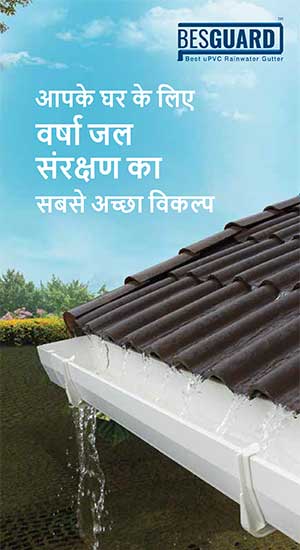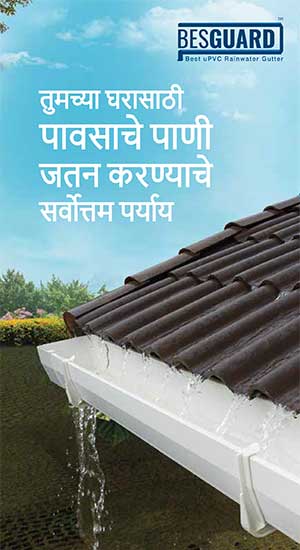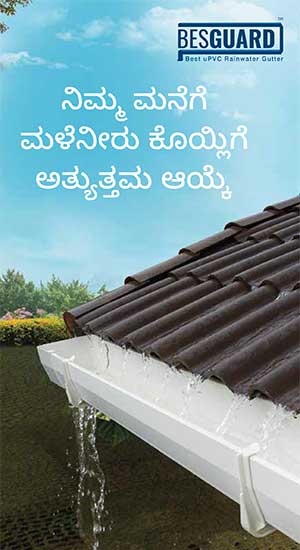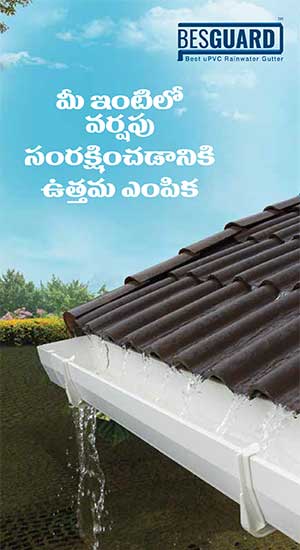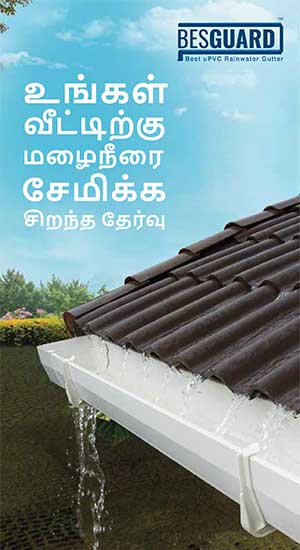Why uPVC Gutters Are Leading Eco-Friendly Renovations in Indian Cities
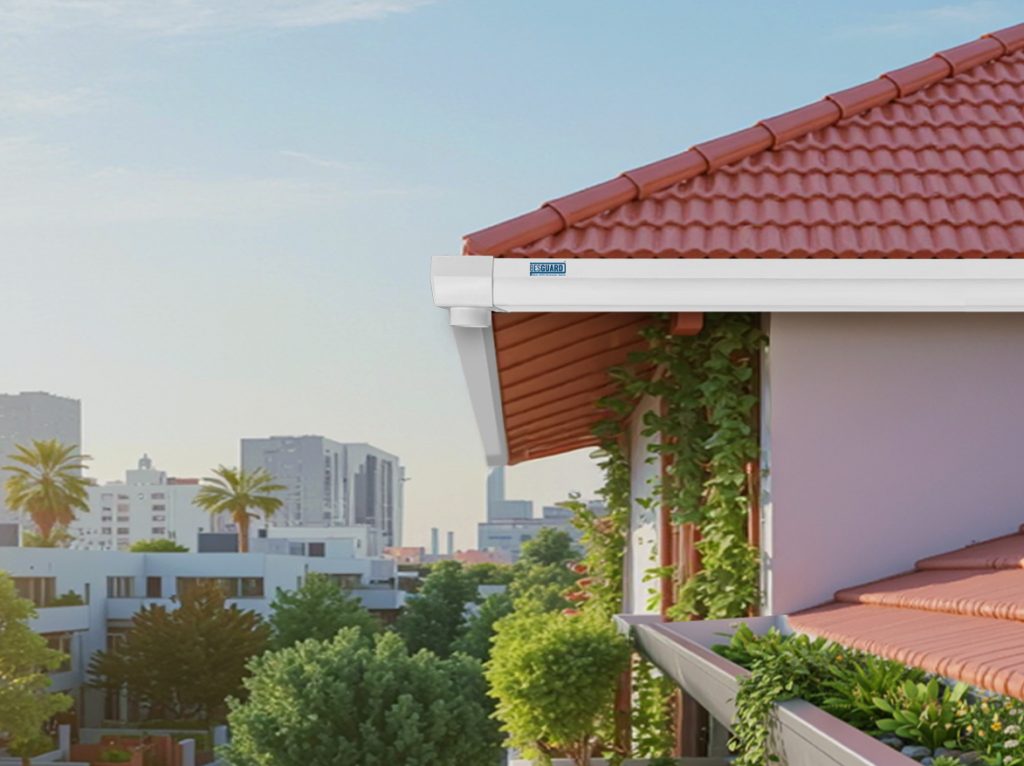
India’s construction sector stands at a pivotal moment. With buildings and construction accounting for 17% of the nation’s greenhouse gas emissions, environmental consciousness has shifted from trend to necessity.
As Indian cities race toward sustainable development, the materials homeowners and builders select today determine whether that progress becomes reality.
Among these critical choices, uPVC rainwater gutters have emerged as the leading choice for eco-conscious renovations – and for compelling reasons rooted in material science, circular economy principles, and genuine environmental impact.
The Sustainability Crisis in Construction
India’s green building materials market, valued at ₹1.19 lakh crore in 2024, is projected to triple to ₹3.35 lakh crore by 2033 – a growth rate of 11.28% annually.
This explosive expansion reflects widespread recognition that conventional building materials carry unsustainable environmental burdens.
Traditional guttering systems manufactured from galvanized steel, aluminum, and cast iron demand energy-intensive production processes, emit significant carbon during manufacturing, and require frequent replacement as materials corrode and deteriorate.
The urgency intensifies as India commits to achieving net-zero emissions by 2070 and reducing GDP emissions intensity by 45% by 2030.
In this context, every building material choice – including something as seemingly minor as rainwater gutters – contributes measurably toward national climate targets.
The uPVC Advantage: Material Science Meets Sustainability
Besguard’s uPVC gutters represent a fundamentally different approach to construction material selection, grounded in three interconnected sustainability principles:
lifecycle carbon reduction, material recyclability, and operational energy efficiency.
Renewable Resource Foundation
Unlike popular misconceptions, uPVC derives 57% of its composition from salt – a renewable, infinitely available resource.
Only 43% comes from petroleum-based sources, creating a material foundation significantly more sustainable than pure plastic alternatives.
This renewable composition, combined with advanced manufacturing technologies, reduces carbon emissions during production compared to energy-intensive metal alternatives.
100% Recyclability Without Quality Degradation
Besguard’s uPVC gutters can be recycled multiple times without losing structural integrity – a capability that fundamentally transforms environmental impact over decades.
When recycled uPVC is processed into new products, the energy requirement drops by approximately 50% compared to virgin uPVC production.
More importantly, recycled uPVC eliminates landfill waste that plagues traditional gutter materials, supporting the circular economy principles increasingly central to India’s construction strategy.
This recyclability extends throughout the product lifecycle.
At end-of-life – typically 25–30 years after installation – Besguard gutters can be fully repurposed rather than discarded, enabling closed-loop manufacturing systems that minimize resource depletion.
Durability That Reduces Replacement Cycles
The environmental cost of any building material extends beyond production – it includes all replacements necessary throughout a structure’s lifetime.
Traditional metal gutters typically require replacement every 15–20 years due to rust, corrosion, and deterioration accelerated by India’s humid climate.
Each replacement cycle demands new raw material extraction, manufacturing energy, and transportation emissions.
Besguard’s uPVC systems, engineered for 25–30 year lifespans without rust, corrosion, or structural degradation, dramatically reduce replacement frequency.
This longevity means fewer lifecycle replacements, lower cumulative carbon emissions, and reduced resource consumption across decades.
IGBC Certification and Green Building Recognition
The Indian Green Building Council (IGBC) explicitly recognizes uPVC as a sustainable material option for certified green buildings.
This institutional validation reflects rigorous environmental assessment confirming that uPVC products meet stringent sustainability criteria.
Properties featuring IGBC-certified uPVC systems access significant financial incentives – many Indian cities offer property tax exemptions for green-building-certified homes.
These policy supports accelerate adoption by recognizing that material selection drives measurable environmental benefits.
Water Conservation and Harvesting Integration
Beyond material sustainability, Besguard’s uPVC gutters facilitate water conservation – increasingly critical as Indian cities face water scarcity.
The smooth, non-porous uPVC surface enables efficient rainwater harvesting with minimal contamination.
Unlike traditional materials that absorb water, degrade, or develop chemical coatings, uPVC delivers clean harvested water suitable for household use, irrigation, and recharge systems.
This water conservation capability transforms gutters from simple drainage infrastructure into active environmental solutions.
A typical residential rainwater harvesting system integrated with Besguard gutters can capture and make available over 1 lakh liters annually – reducing municipal water dependency while supporting groundwater recharge essential for urban sustainability.
Comparative Environmental Performance
The sustainability advantage of uPVC becomes clearer when compared directly to conventional alternatives:
- Wooden gutters, while renewable, require chemical treatments for fire resistance and weather protection – creating VOC (volatile organic compound) emissions and environmental contamination. These systems also demand frequent replacement as wood rots and warps, driving higher lifecycle resource consumption.
- Aluminum gutters, though recyclable, require energy-intensive production that generates substantial manufacturing emissions. Additionally, aluminum’s thermal conductivity renders it unsuitable for modern energy-efficient building envelope systems increasingly important to India’s green building standards.
- Steel and galvanized iron gutters demand protective coatings and regular maintenance, generating ongoing environmental burdens from chemical treatments and frequent replacements within 15–20 years. The corrosion cycle creates waste streams requiring proper disposal, adding to lifecycle environmental costs.
By contrast, Besguard’s uPVC systems minimize manufacturing emissions, eliminate replacement cycles driven by corrosion, eliminate toxic maintenance chemicals, and support true circular economy principles through complete recyclability.
The Broader Context of Green Building Materials Evolution
India’s green building materials market encompasses diverse innovations – from hempcrete and bamboo composites to recycled plastic pavers and low-carbon cement.
Within this expanding ecosystem, uPVC gutters represent mature, proven technology delivering measurable environmental benefits while maintaining affordability and reliability.
Unlike emerging materials still proving scalability, Besguard’s manufacturing processes, installation protocols, and performance characteristics are fully established – enabling confident specification in IGBC-certified projects and green renovation initiatives.
Leading India’s Sustainable Urban Renovation
India’s rapid urbanization creates enormous opportunity for sustainable material adoption.
As millions of homes undergo renovation or new construction, material choices compound at scale – amplifying either environmental benefit or burden.
Homeowners and builders selecting Besguard’s uPVC gutters for renovation projects participate in India’s broader transition toward sustainable construction.
The choice extends beyond individual properties.
When neighborhoods, developments, and cities systematically adopt sustainable drainage solutions, the aggregate environmental impact becomes transformative – reducing manufacturing emissions, eliminating corrosion-cycle waste, supporting water conservation, and advancing India’s net-zero commitment.
For urban Indians committed to sustainable renovation choices, Besguard’s uPVC gutters represent the convergence of material innovation, environmental responsibility, and proven performance.
They’re not aspirational sustainability – they’re the practical, proven foundation of India’s green building revolution happening right now across Indian cities.



